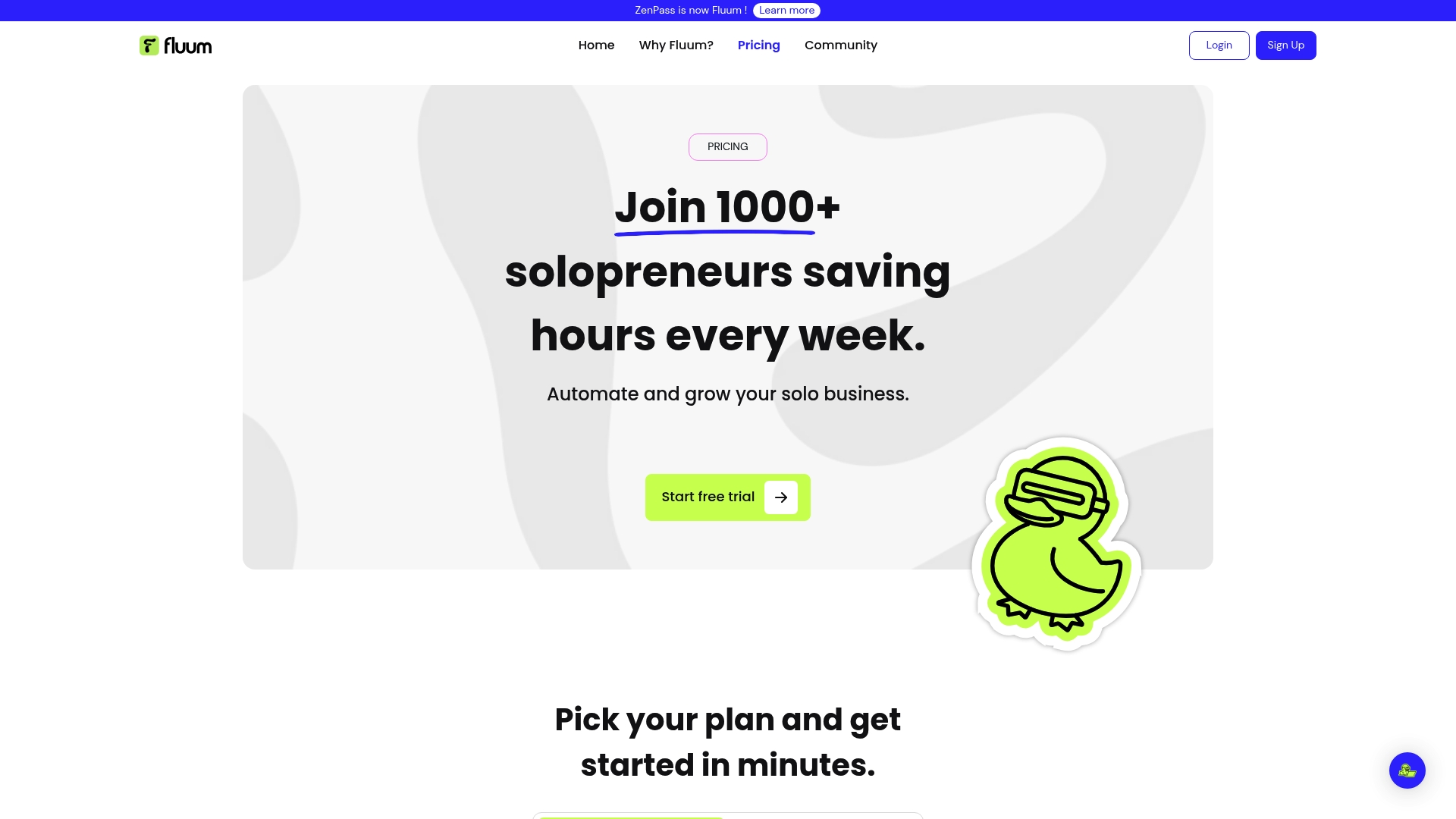
Knowing the importance of mentorship is fundamental. Over 80 percent of professionals say mentorship helped them achieve career success, yet many still misunderstand how these relationships really work. Misconceptions can keep solopreneurs from tapping into one of their most valuable resources for growth. By recognizing what mentorship truly involves and spotting common myths, solopreneurs can unlock new opportunities for learning, confidence, and professional progress.
Table of Contents
- Defining Mentorship And Common Misconceptions
- Key Types Of Mentorship Relationships
- How Mentorship Drives Solopreneur Growth
- Roles And Responsibilities In Mentoring
- Avoiding Pitfalls And Maximizing Value
Key Takeaways
| Point | Details |
|---|---|
| Understanding Mentorship | Mentorship is a dynamic relationship promoting mutual growth, benefiting both mentors and mentees. |
| Types of Mentorship | Solopreneurs should explore various mentorship types, including traditional, formal, informal, and co-mentoring, to find the best fit for their needs. |
| Roles in Mentorship | Both parties must engage actively, with mentors providing guidance and feedback, while mentees take initiative and remain receptive to learning. |
| Maximizing Value | To enhance mentorship effectiveness, set clear goals, maintain consistent communication, and foster mutual respect and trust throughout the relationship. |
Defining Mentorship and Common Misconceptions
Mentorship is a powerful developmental relationship where an experienced professional provides strategic guidance and support to help another person grow. According to Educause, mentorship is not just about hierarchy, but a nuanced connection designed to foster professional and personal advancement.
Contrary to popular belief, mentorship is not a one-sided interaction where only the mentee benefits. As IIER highlights, effective mentorship is a dynamic relationship that creates mutual growth opportunities. The mentor also gains valuable perspectives, learns from fresh insights, and experiences personal satisfaction from supporting another professional’s journey.
Several common misconceptions can prevent solopreneurs from seeking or engaging in meaningful mentorship:
- Mentorship must be formal and structured
- Only senior professionals can be mentors
- Mentorship is time-consuming and complicated
- The learning only flows in one direction
In reality, mentorship can be flexible, organic, and occur through various channels – from occasional coffee conversations to structured quarterly check-ins. What matters most is genuine connection, mutual respect, and a shared commitment to professional development.
Key Types of Mentorship Relationships
Solopreneurs can benefit from understanding the diverse landscape of mentorship relationships. According to Educause, mentorship relationships broadly fall into three primary categories: traditional, formal, and informal mentoring, each offering unique advantages for professional development.
Traditional mentorship typically involves a senior professional guiding a junior colleague, creating a hierarchical learning environment. In contrast, IIER highlights the emergence of co-mentoring, a more collaborative approach where peers support each other’s professional growth. This model is particularly relevant for solopreneurs who often work independently but seek mutual professional development.
Let’s explore the key types of mentorship relationships:
Here’s a comparison of key types of mentorship relationships relevant to solopreneurs:
| Type of Mentorship | Structure | Direction of Learning | Typical Benefits |
|---|---|---|---|
| Traditional | Hierarchical | Mentor to Mentee | Industry insights Career guidance |
| Formal | Structured | Mostly One-way | Goal clarity Accountability |
| Informal | Flexible/Organic | Two-way (flexible) | Authentic connection Personalized advice |
| Co-Mentoring | Collaborative/Peer | Both directions | Mutual development Shared learning |
- Traditional Mentorship: One-directional guidance from an experienced professional to a less experienced individual
- Formal Mentorship: Structured relationship with predefined goals, often within an organizational framework
- Informal Mentorship: Organic connections based on mutual interests and professional compatibility
- Co-Mentoring: Reciprocal learning between professionals at similar career stages
For solopreneurs, the flexibility of these mentorship models means you can design a relationship that precisely matches your professional development needs.

Whether you prefer structured quarterly check-ins or casual networking conversations, there is a mentorship approach that can accelerate your professional growth and provide valuable insights from experienced professionals.

How Mentorship Drives Solopreneur Growth
Mentorship is a transformative catalyst for solopreneurs seeking strategic professional advancement. According to EAJournals, mentorship provides critical emotional and psychological support that enhances motivation and performance, enabling independent professionals to navigate complex business landscapes more effectively.
The impact of mentorship extends far beyond simple advice. ArXiv research highlights how effective mentoring strategies help professionals overcome challenges and integrate more successfully into their professional ecosystems. For solopreneurs, this means gaining insights that can dramatically accelerate business growth, skill development, and strategic decision making.
Key ways mentorship drives solopreneur growth include:
- Strategic Guidance: Accessing experienced perspectives on business challenges
- Skill Development: Learning advanced techniques and industry best practices
- Emotional Support: Building resilience and confidence in independent work
- Network Expansion: Creating connections beyond immediate professional circles
By leveraging mentorship, solopreneurs can transform isolated professional journeys into collaborative growth experiences. Learn more about developing growth strategies that can complement mentorship and amplify your professional potential.
Roles and Responsibilities in Mentoring
Successful mentorship requires a balanced and intentional approach from both the mentor and mentee. According to Educause, the relationship hinges on clear communication channels and shared accountability, where each party plays a distinct yet interconnected role in driving professional growth.
IIER emphasizes that effective mentoring is a two-way street, with both participants committing to mutual learning and development. The mentor’s primary responsibilities include providing strategic guidance, sharing industry insights, and offering constructive feedback, while the mentee must remain proactive, receptive, and committed to implementing recommended strategies.
Key responsibilities for each role include:
Mentor Responsibilities:
- Offer objective professional perspectives
- Share personal experiences and lessons learned
- Provide constructive and specific feedback
- Challenge mentee’s assumptions and thinking
- Create safe spaces for vulnerability and growth
Mentee Responsibilities:
- Demonstrate genuine commitment to learning
- Ask thoughtful, specific questions
- Be open to critical feedback
- Take initiative in applying recommended strategies
- Maintain consistent communication
Learn how to overcome imposter syndrome and develop the confidence needed to maximize your mentorship experience. The most transformative mentor-mentee relationships are built on mutual respect, trust, and a shared commitment to professional evolution.
Avoiding Pitfalls and Maximizing Value
Successful mentorship requires strategic navigation and intentional relationship management. According to Educause, the key to maximizing mentorship value lies in compatibility and clear communication, ensuring that both mentor and mentee are aligned in their expectations and goals.
IIER emphasizes the importance of establishing transparent expectations and maintaining consistent dialogue to prevent potential misunderstandings. Solopreneurs must approach mentorship with a proactive mindset, understanding that the relationship’s success depends on mutual commitment and genuine engagement.
Common pitfalls to avoid in mentorship include:
- Undefined or vague relationship objectives
- Inconsistent communication
- Lack of mutual respect and trust
- Passive participation from either party
- Unrealistic expectations about outcomes
To maximize mentorship value, solopreneurs should:
- Set specific, measurable goals
- Schedule regular check-ins
- Maintain open and honest communication
- Be receptive to constructive feedback
- Demonstrate commitment through action
Learn about essential business goals that can complement your mentorship journey and drive strategic professional growth. Remember, the most transformative mentorship experiences emerge from intentional, reciprocal relationships built on trust, mutual learning, and shared commitment.
Empower Your Mentorship Journey with Fluum’s AI Co-Founder
Mentorship is essential for solopreneurs looking to grow with strategic guidance and emotional support. Yet finding the right mentor and maintaining consistent, productive communication can be challenging. You need a trusted partner to help manage goals, track progress, and keep your business on course while you focus on learning and creating.

Take control of your growth with Fluum. Our AI-powered platform acts as your personal co-founder, automating daily operations and delivering tailored insights so you can maximize every mentorship opportunity. Whether you need help managing client outreach, scheduling mentor sessions, or tracking your progress, Fluum makes solopreneurship smoother and more scalable. Don’t let uncertainty or time constraints hold you back. Discover how Fluum can transform your mentorship experience and accelerate your business success today. Start your journey now by exploring Fluum Pricing and learn more about developing growth strategies or overcoming imposter syndrome to build confidence.
Ready to empower your professional evolution? Visit Fluum and take the next step toward effortless growth.
Frequently Asked Questions
What is mentorship and how does it benefit solopreneurs?
Mentorship is a partnership between an experienced professional and a less experienced individual, designed to foster personal and professional growth. For solopreneurs, it provides strategic guidance, emotional support, and valuable insights which can significantly enhance business operations and decision-making.
What are the different types of mentorship relationships suitable for solopreneurs?
There are several mentorship types including traditional, formal, informal, and co-mentoring. Each type offers unique benefits, allowing solopreneurs to choose a mentorship model that aligns with their specific learning and development needs.
How can solopreneurs maximize the value of their mentorship experience?
To maximize mentorship value, solopreneurs should set specific goals, maintain regular communication, be open to feedback, and actively engage in the mentoring process. This ensures a productive relationship that drives professional growth.
What are common misconceptions about mentorship?
Common misconceptions include the belief that mentorship must be formal, only senior professionals can be mentors, and that learning only flows in one direction. In reality, mentorship can be flexible, fostering mutual growth through authentic connections.
Recommended
- Building Professional Relationships: Complete Guide
- Digital Marketing Fundamentals For Solopreneur Success
- Complete Guide To Business Decision-Making Success
- Business Niche Explained: Strategies For Solopreneurs
- Fluum | Effective Stress Management Techniques for Busy Professionals
- Fluum | How to Onboard Clients Effectively for Lasting Success
- Fluum | Master Managing Multiple Projects for Success
- Fluum | Build Your Brand with a Branding Builder in 2025
- Fluum | 7 Customer Retention Examples to Boost Your Business



